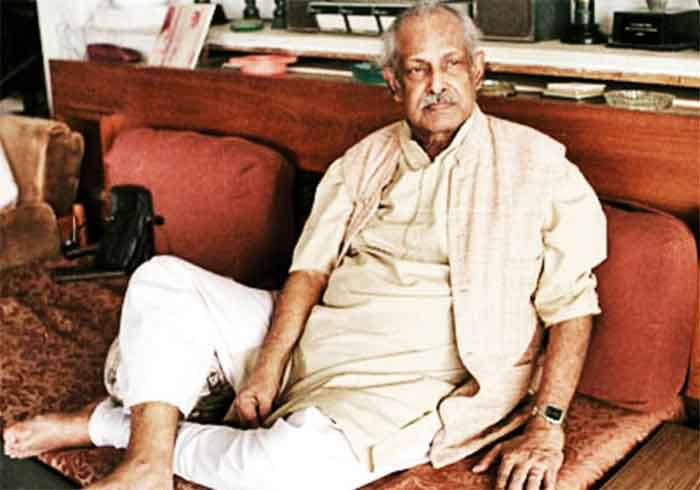
Hrishikesh Mukherjee (1922-2006) is very widely, and fondly, remembered as one of the greatest directors, editors and story-tellers of Hindi cinema who also contributed in a smaller way to cinema of other languages. Leaving his career of teaching Maths to train under an editor of Bangla films predictably called Kenchi Da, he shifted to Hindi to learn from great masters like Bimal Roy. For more than four decades, he contributed a rich legacy of several films of great social relevance and inspirational value as well as several films which brought clean wholesome entertainment to the family audience of Hindi films.
In the process he also made some forgettable films but his overall contribution is very impressive. It is not easy in Bollywood conditions to have a continuity of making good films for a period of two decades, but Hrishi Da maintained this continuity for over four decades in the middle of many kinds of problems and tensions, and this itself is a great achievement. If many Hindi film viewers regard his masterpiece Anand as one of the best films ever made, there are others who say that Chupke Chupke s the best Hindi comedy film.
Leaving aside his lesser films and TV serials, some of which also have their own value, there are at least about 20 films of Hrishi Da as director which can be said to be of very durable value. These include Anand, Anari, Asli Naqli, Chaya, Saanjh Aur Savera, Gaban , Manjhli Didi, Abhiman, Mili , Guddi, Bawarchi, Namakharam, Anuradha, Ashirwad, Satyakam, Anupama, Khubsoorat, Golmaal and Chupke-Chupke, the last two being comedies.
Since it will be difficult to do justice to all of them here, I will confine myself to those four films which are great gems but are not widely known today. These four films are Anuradha, Ashirwad, Satyakam and Anupama.
One factor common to all these four films is that the hero of these four films is an idealist man who is struggling against great odds to work and live in harmony with his ideals. One hopes that someone some day can organize a retrospective of these four great films which are brought together by this common feature.
Anuradha (1960) is the story of a highly capable young doctor who opts for a life serving the poor in villages. His beloved gives up a promising career as a singer and dancer to live with him in the village. She has accepted this life, but a sudden twist of circumstances brings in tensions. Music by the great Ravi Shankar with its classical base is just superb. In particular these two songs –Hai re woh din kyo naa aaye and saanware, saanware—just cannot be forgotten. Great acting by Balraj Sahni and Leela Naidu (who has a very graceful presence) has contributed well to the enduring value of this gem of a film which should be seen by all couples who choose in their young days to walk the less travelled path.
Ashirwad (1968) is the least known of these four great films, although its fun songs ( railgaadi, chuk-chuk and nani ki naav chali) became very popular with children. Ashok Kumar has given one of his most memorable performances in this film. While watching this film I was reminded of what I read in Tolstoy’s writings about the late years of his life and I wonder if this film was inflenced by this. It is a very moving story of a man’s enduring, lifelong struggle to be true to his core values and beliefs.
Satyakam (1969) is another truly great film of the struggles of a deeply idealistic engineer who has to suffer constantly due to his refusal to compromise on his honesty. Alongside there are several references which establish the greatness of pursuing truth in a life of struggles rarther than in solitude of ashrams. Hrishi Da is able to bring out the best from Dharmendra’s acting ablities as a young man of ideals. Sharmila Tagore has also given a memorable performance here.
Anupama ( 1966) is more of a heroine-centered film ( played very well by Sharmila) but here again we have Dharmendra playing the idealist young man very well, this time in his role as a writer and poet. Music by Hemant Kumar is great, with Yaa Dil Ki Suno Duniya Walo being sung (also by Hemant) and picturised particularly well. The main theme here is of a girl growing to womanhood without getting parental affection and feeling the first deep emotions of love when she meets the idealist poet.
However the special mention made here to these four relatively lesser known gems from the treasure-house of Hrishikesh Mukherjee should not distract attention from the enduring value of his many other memorable films, particularly Anand and Anari.( He certainly had a preference for titles starting with A)! He will be remembered long for his very special contributions to Hindi cinema.
Bharat Dogra is a journalist and author with a special interest in cinema of social relevance.

















































